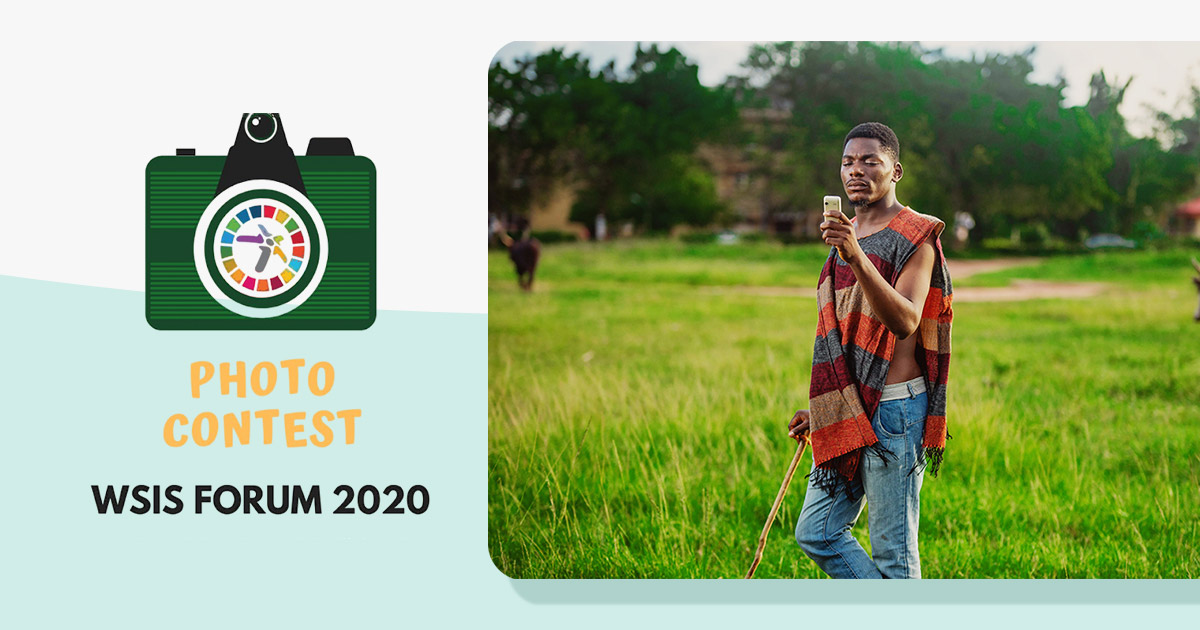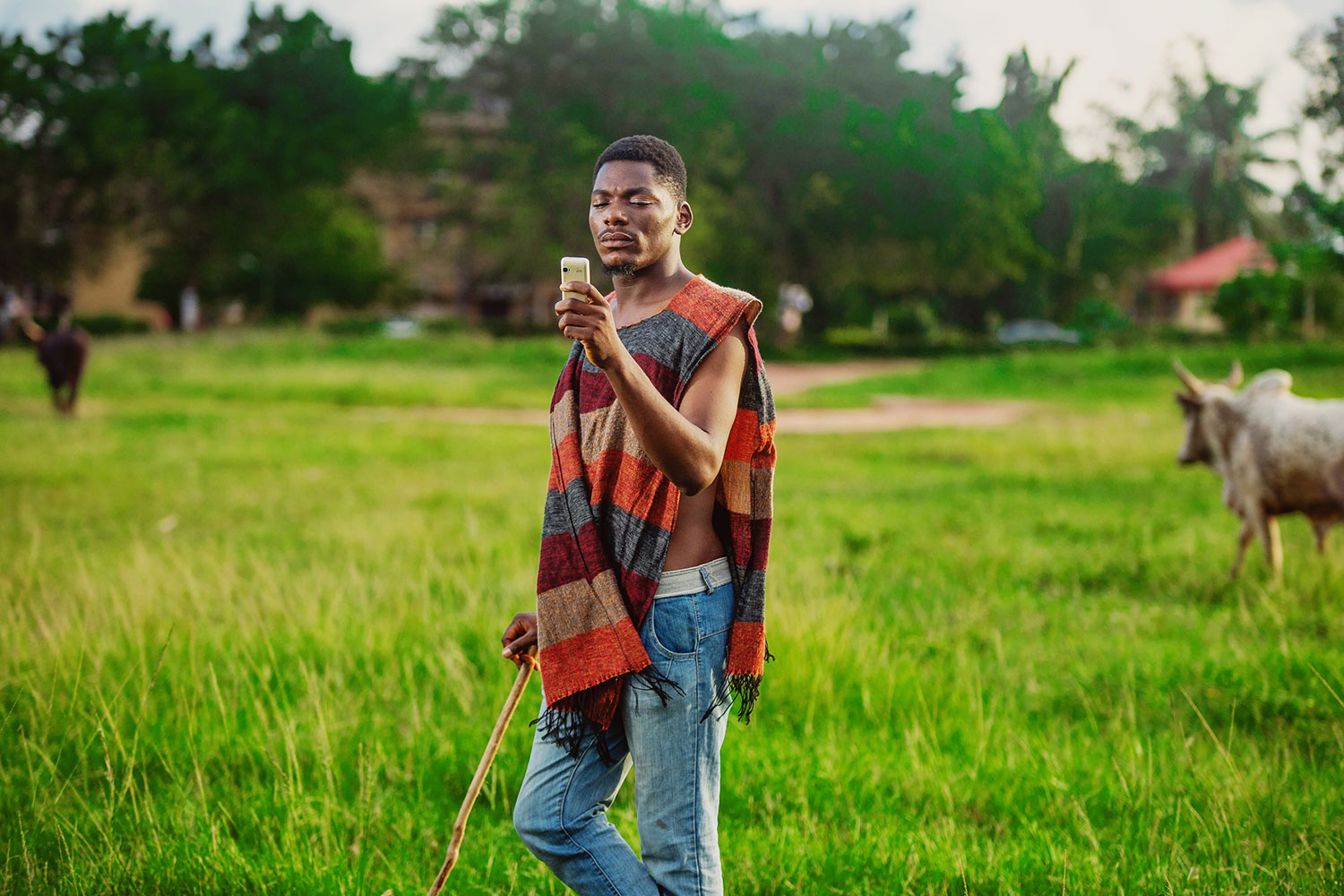
A KaiOS image representing digital inclusion in Nigeria was one of three winning photos in a contest organized by The World Summit on the Information Society (WSIS), a United Nations (UN) conference for bridging the global digital divide.
The contest called for images that showed how information and communication technologies, like apps and internet-enabled devices, support sustainable development goals.

The winning photo, taken by Nigerian photographer Emmanuel-King Itegboje, depicts a man using a KaiOS phone on a farm in Nigeria. “The latest farming info is affordably arriving through smart feature phones,” reads the photo caption, referencing how African farmers have begun using apps on KaiOS devices to improve their harvests.
A collaboration with mission-driven startup #Adtags
A collaboration between KaiOS and #Adtags, a startup that provides global brands with “non-stocky” images of people of color to increase their representation in media, the photo was one of a series commissioned by KaiOS to portray people using KaiOS devices.

“We needed pictures of people in Africa using KaiOS phones, and I realized we could create a real win-win situation working with #Adtags. We would get custom-made pictures of people with smart feature phones; we would support a startup with a similar, purposeful mission; and images of people using our devices would end up in the #Adtags library for others to see and use,” says KaiOS Marketing Director Tim Metz.
#Adtags founder Vimbayi Kajese worked with three local photographers to create photos of Nigerian men and women using KaiOS devices to learn, work, and play, but only one photo, Emmanuel’s, was submitted to the WSIS photo contest. “Out of all the images, the winning photo is the one that most accurately represents our vision,” says KaiOS Brand Manager Donald Chung.
The photo was scheduled to be exhibited at the WSIS Forum in Geneva in early April, but plans changed as a result of the pandemic. The photo can be can be seen on the WSIS website instead.
For Tim Metz, the best thing about winning the WSIS photo competition is that it’s brought visibility to smart feature phones and their role in making the internet more accessible. “The jury recognizes the impact that smart feature phones have on daily life in Africa,” he says. “They undoubtedly had other, more futuristic and flashy pictures to choose from, but they chose this one.”